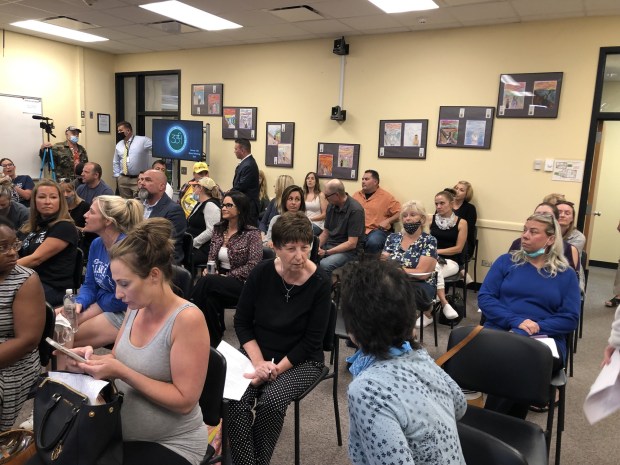Two weeks ago, the Chicago City Council voted unanimously to strike down Mayor Brandon Johnson’s proposed property tax increase, which was just one of many tax hikes he floated as part of his 2025 budget proposal. Among the others is a staggering 35% tax increase on alcohol that, if passed into law, would negatively affect many in Chicagoland and beyond: consumers, workers and small-business owners like me.
I co-founded and lead Koval Distillery, the first distillery in Chicago since the mid-1800s. We helped blaze the trail for a wave of craft distilleries that have opened across the state of Illinois and the country, even helping change state laws and lead workshops for those seeking to launch these businesses. We are proud to be part of the city’s “Malt Row” in the Ravenswood neighborhood, home to 10 independent alcohol manufacturers. Consumers love the proliferation of new whiskeys, gins and other spirits, and we’ve helped grow local economies in the process.
This tax increase would jeopardize that growth. In such a competitive industry, I cannot raise prices any further without pricing our products out of this market. That means the tax would come directly out of our bottom line, leaving us with less money to hire new employees, support local farms through grain purchases and help power our local economy.
In that way, this isn’t just a tax on alcohol. It would affect the local farmers we buy our grain from, the workers and artisans we employ, the bars and retail stores that sell them and, not least of all, the customers who welcome us as part of their celebrations, family gatherings and social lives.
If prices go up on spirits in the Chicago area, people will either buy fewer products or venture outside city limits to buy, and who can blame them? Chicago alcohol taxes are already drastically higher than any of the surrounding areas, with about 56% of the purchase price of a bottle of spirits going to pay taxes or fees of some kind. This tax would make the combined alcohol tax rate in Chicago more than double the average for similar cities.
It would come at a terrible time for a couple of reasons. For one, because inflation is already taking an ugly toll and not just on consumers. Prices have skyrocketed across the board for our business, on everything from raw materials such as corn and rye to labor and local services such as printing and advertising. Some of the grains we use for our whiskeys are seven to eight times more expensive than when we started our company.
It’s also bad timing because of a looming 50% European Union tariff on American whiskey scheduled to be imposed in March. We have worked diligently for years to get our products onto shelves in Europe, where consumers have a taste for bourbon and other American whiskeys. During Donald Trump’s last administration, the EU and the United Kingdom’s 25% retaliatory tariffs on our products almost erased our gains. Now this dark cloud of uncertainty is back.
The mayor clearly recognizes the value and contribution that my distillery and others across the city bring to Chicago. Just this fall, I was honored by Johnson with the Manufacturing Leader of the Year Award, which makes this tax on local alcohol manufacturers even more disappointing. There are nine distilleries within city limits, representing a completely new manufacturing sector that has developed over the past 15 years.
We do everything in our power to be a positive force in our community. During the pandemic, for example, craft distilleries switched to manufacturing hand sanitizer in order to fill shortages. We have also been a source of economic revitalization, bringing tourism, jobs and culture to our communities.
We would love for the City Council to partner with us in these efforts. Striking down this tax is a great place to start.
Sonat Birnecker Hart is president and co-founder of Koval Distillery.
Submit a letter, of no more than 400 words, to the editor here or email letters@chicagotribune.com.



